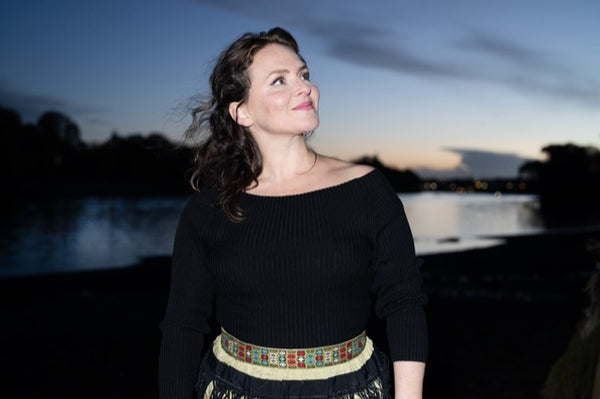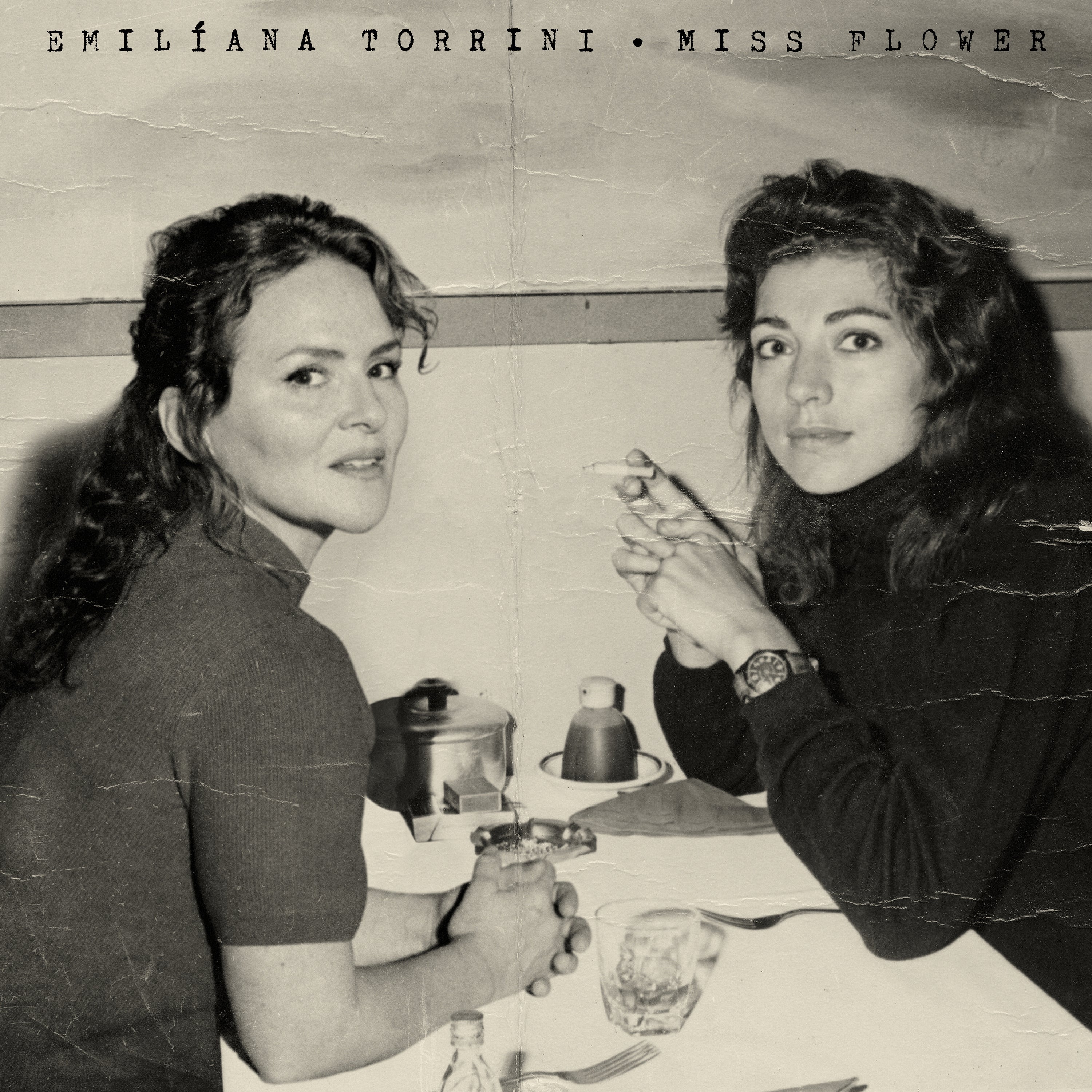
WEBSITE
Emiliana Torrini
Born in Iceland to an Icelandic mother and Italian father, Emiliana joined a choir as a soprano at the age of seven, before enrolling in opera school at the age of fifteen. Discovered singing in a restaurant in Reykjavik by One Little Indian head-honcho Derek Birkett, Emiliana subsequently contributed vocals on GusGus’s debut album, Polydistortion, before a relocation to London ensured co-writing duties on Slow – for which she was nominated for a Grammy – and Someday on Kyle Minogue’s 2003 Body Language album. By this point in proceedings, Emiliana had already contributed vocals on Paul Oakenfold’s Hold Your Hand, and composed three songs on Thievery Corporation’s album, The Richest Man In Babylon, although she is perhaps best known for her performance of Gollum’s Song for the 2002 film, Lord Of The Rings: the Two Towers, and breakthrough tracks Sunny Road (off 2005’s Fisherman’s World) and 2009’s Jungle Drum, “a little gem reminiscent of Nancy Sinatra in her heyday” (Clickmusic) that hit the No.1 spot in several European countries. Correspondingly, a series of breath-taking solo albums would result in her reinterpreting some of her back catalogue with pop/chamber music collective, The Colorist Orchestra, on The Colorist and Emiliana Torrini in 2016, before 2023’s Racing The Storm cemented her reputation as one of the industry’s most prolific collaborators, whilst perhaps deferring to a somewhat greater truth: a good deal of us were still yearning for the powerful solitude of her solo recordings.
"We started reading some of these letters, mostly, but not only, from her lovers. They were quite obsessed with her, totally in love with her."
This is one of the good stories: Celebrated Icelandic singer/songwriter Emiliana Torrini - her solo albums include Love in the Time of Science (1999), Fisherman's Woman (2005), Me and Armini (2008) and Toookah (2013) - and her friend Zoe were sifting through the letters of Zoe's recently deceased mother when they stumbled upon her extraordinary, secret life. Zoe was in deep mourning and Emiliana was comforting her as they were both struck by a thought: what if? What if this remarkable woman - Geraldine Flower - who they had just learned (through a series of letters, diaries and photographs) had received nine marriage proposals but never married, and who had a very diverse circle of friends - one of her friends had a lion cub who she would walk some evenings after dark! - could somehow be brought back to life? And what if Emiliana and Simon Byrt (her long-time collaborator and Zoe's husband) could do this in the form of their stories set to music?
Well, that “what if?” became MISS FLOWER, Emiliana Torrini’s first solo album in ten years and a stunning evocation of a woman’s life, reinterpreted by one of the most innovative and groundbreaking artists of this or any era.
It's always been that way, I hear you exclaim, because Emiliana has often told a funny story. Born in Iceland to an Icelandic mother and Italian father, Emiliana joined a choir as a soprano at the age of seven before entering opera school at fifteen. Discovered as a singer by One Little Indian chef Derek Birkett in a Reykjavik restaurant, Emiliana contributed to GusGus's debut album Polydistortion before moving to London to co-write Slow - for which she was nominated for a Grammy - and Someday on Kyle Minogue's 2003 album Body Language. By this time, Emiliana had already contributed vocals on Paul Oakenfold's Hold Your Hand and composed three songs on Thievery Corporation's The Richest Man In Babylon album, although she is perhaps best known for her performance of Gollum's Song for the 2002 film Lord Of The Rings: The Two Towers, and the breakthroughs Sunny Road (from 2005's Fisherman's World) and 2009's Jungle Drum, "a little gem reminiscent of Nancy Sinatra in her heyday" (Clickmusic), which reached No. 1 in the charts. 1 position in several European countries. A series of stunning solo albums saw her reinterpret some of her work with pop/chamber music collective The Colorist Orchestra on 2016's The Colorist and Emiliana Torrini, before she cemented her reputation as one of the industry's most prolific collaborators with 2023's Racing The Storm, perhaps bowing to a slightly larger truth: many of us still longed for the powerful solitude of her solo recordings.
“I lived most of my life behind a curtain.”
Which brings us back to MISS FLOWER. First up is Black Water, a perfectly realized piece of mysterious electronica that's as likely to bring traffic to a halt as anything else you'll hear this year. The song is really just a metaphor for a much bigger idea: why is a US special agent writing to Miss Flower, and why do other letters seem to indicate espionage connections and codes? Emiliana was inspired to use this metaphor after swimming in a lake at a festival in Berlin - "there was a meteor shower, and the full moon shone on the water, creating a black water-oil mirror: entering the water was like diving into a different kind of substance" - but the experience also conjured up another running theme on the record: the nature of what it means to be a free spirit. Of course Miss Flower was one, but what about Emiliana? Like most of us, Emiliana had occasionally submitted to - and sometimes embraced - the behavioral norms of adult life, but what did it mean for her to live "in the constructs" of motherhood and marriage? And why did she feel patronized as a mature woman when she finally returned to work full-time after a sabbatical year devoted to motherhood?
While the answers to these questions are of course left largely unanswered, Emiliana soon has more important things to do: Lady K is a cleverly crafted alt-electronica number in which Geraldine's long-term lover (and main letter writer!), Reggie, appears to be writing to her about a new lover, only to reveal that Lady K is actually a new boat he's fallen in love with, a boat the couple would eventually vacation on; Waterhole, with more than a nod to trip hop, was inspired by the possibility that Reggie was a spy, and Miss Flower was frequently traveling at the time - so was she involved in something herself? The piece contains all sorts of imagery of animals (who would normally eat each other) meeting at a watering hole, which turns out to be basically a metaphor for people meeting in a safe space and exchanging information; Dreamers is almost certainly about Miss Flower and Reggie knowing they love each other but also knowing they can't be together; and Miss Flower - all "sixties sexiness," describing a man who writes to her that he thinks of her when he mows the lawn - is so finely nuanced that it recalls artists such as Leonard Cohen or Nick Cave, at least in the way those artists treat their voices as instruments in their own right, with Emiliana's vocal delivery so finely balanced that it can claim land rights of its own. Interestingly, while the album was being mastered in New York, legendary Egyptian sound engineer Heba Kadry had instructions from Emiliana to make the record sound like Leonard Cohen's 'I'm Your Man': "intimate, direct singing, without the music disappearing!"
“We are only as sick as our darkest secrets.”
There are more truths yet to be revealed: Emiliana knew Miss Flower, if not as a young woman, then later in life, when she was "a magnet, super-positive and super-smart". In Black Lion Lane, Emiliana is staying in her London flat near Black Lion Lane and tries to imagine how she lived there as a younger woman, "sitting in the pub, walking down by the river". Later, in Let's Keep Dancing - another melancholy, Cohen-esque up-tempo number - Miss Flower meets a man in the Caribbean and we hear that he has forgiven her for what she did long ago and perhaps understands that he must now "let her fly", says Emiliana. The song celebrates one last dance, one last night before a break-up, and is the only duet on the album. Simon Byrt sampled a song that Miss Flower's Trinidadian boyfriend Harold Prieto had sent her on a cassette in the early 80s. "We couldn't find him for over two years," Emiliana recalls. "But we didn't give up - and then, when the album was almost finished, an email came from him!"
“Now, I try to imagine you a wine/ What sort you'd be, and how I'd describe you.”
Towards the end of the recording, Emiliana realised that a voice and a perspective were missing - that of Miss Flower herself. Then Zoe came across a poem written in 1970 that she had dedicated to her great love, Reggie. The poem was recorded together with new ones by Emiliana wrote the verses to Love Poem, “as if I had written it together with her.” “It was so important for me to have that piece,” says Emiliana, presumably acknowledging that the album’s closer, The Golden Thread, fulfills a similar function. The latter tells the story of an ex-partner who describes in passionate letters to her how he constantly thinks about her, even when he is in bed with his new partner.
Emiliana says, “it was heart-wrenching for me to finally say goodbye to those characters, but I look forward to telling these incredible stories to an audience.”
This is another good example: if Emiliana Torrini and her friend Zoe hadn't stumbled upon a box of letters, we would never have had MISS FLOWER - and that would have been a sad loss for the world. The album is nothing more and nothing less than a masterpiece, nine perfectly realized snapshots of a life lived, a stunningly successful solo return to the music landscape. And, oh, what a life. And, oh, what a record.
© Jane Savidge, December 2023.


